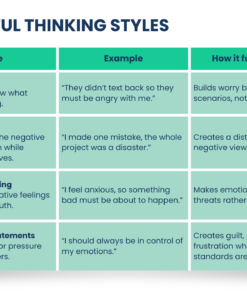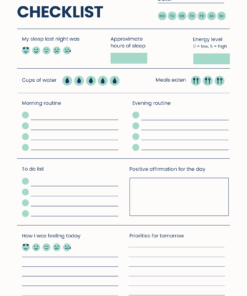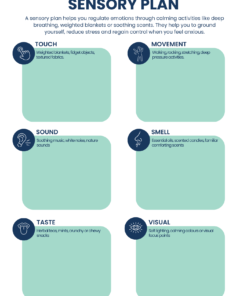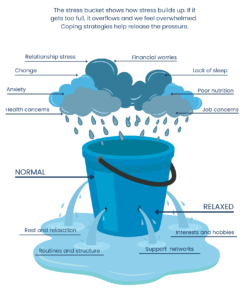Self-care
When self-care feels like just another task: redefining what it means to look after yourself
Rethinking self-care: finding balance, recharging and connecting without the pressure
Self-care. The word alone is enough to conjure up images of luxurious bubble baths, flickering scented candles and calming meditation apps. But what if the very idea of self-care feels more like another demand on your already stretched time—a burden rather than a break?
For many people, especially those expertly juggling the demands of work, family responsibilities, or navigating mental health challenges, self-care can quickly morph into just another item on an ever-growing to-do list. Instead of being a comforting source of respite, it becomes an obligation—something else we feel we should be doing, wrapped up in the subtle pressure to get it right, to achieve some idealised version of self-care.
But here’s the truth—a liberating truth: self-care isn’t about rigidly following a checklist of prescribed activities. It’s deeply personal, and it’s about discovering what genuinely helps you feel balanced, recharged and authentically connected to yourself in your everyday life. Occupational therapists understand this intimately, viewing self-care as a fundamental aspect of our daily occupations—the essential activities that support our health and wellbeing.
Rethinking self-care: making it fit your life
One of the biggest misconceptions surrounding self-care is the notion that it has to be something extra—a separate activity slotted into an already overflowing schedule. In reality, true self-care should seamlessly fit into your life as it currently is, rather than becoming yet another demand on your precious time and limited energy. Think of it like adding a little extra flavour to a meal you’re already cooking, rather than preparing an entirely separate dish.
If the traditional self-care advice feels overwhelming, unattainable or frankly just not your cup of tea, try shifting your perspective. Instead of automatically asking, “What should I be doing for self-care?” try asking yourself, “What already subtly works for me in my day, and how can I gently build on that?” This approach aligns perfectly with the principles of occupational therapy, which focuses on understanding an individual’s existing routines and identifying small, meaningful adjustments that can enhance their overall wellbeing.
Here are some practical ways to redefine self-care in a way that feels natural, sustainable and genuinely helpful; rather than forced and guilt-inducing.
Redefining self-care
Self-care doesn’t always have to be a grand gesture or a separate, dedicated activity. Often, it’s about intentionally adding small moments of pleasure, comfort or connection to the things you already routinely do.
Could you choose to listen to your favourite music while you’re making dinner, like a simple sensory pleasure woven into a necessary task? Could you intentionally use your favourite mug for your morning coffee, savouring that first warm sip as a small moment of mindful enjoyment? Could you take a deliberate deep breath and have a quick stretch when you naturally stand up from your desk bringing a tiny act of physical self-awareness integrated into your workday?
These seemingly insignificant, tiny shifts can collectively make a profound difference to how you experience your day and, ultimately, your overall wellbeing. Occupational therapists often encourage these small, mindful integrations of self-care into daily routines.
How we talk to ourselves internally has a significant impact on how we experience self-care. Instead of thinking “I should really go for a walk because it’s good for me,” which can feel like another obligation, try reframing it to “I deserve some fresh air and movement because it makes my body and mind feel good.” This subtle shift in language acknowledges your needs and frames the activity as a positive choice rather than a chore.
Be kind and compassionate to yourself. Gently remind yourself that rest isn’t something you have to earn through relentless productivity. It’s a fundamental human need, something you inherently deserve to allow your body and mind to recover and recharge.
Occupational therapists often work with individuals to develop more positive and supportive internal dialogue as a key component of self-care and mental wellbeing.
Self-care looks and feels different for everyone. What one person finds deeply relaxing and restorative might feel stressful or unappealing to another. If a complicated 10-step skincare routine feels like a burden rather than a treat, feel absolutely free to ditch it. If traditional seated mindfulness meditation feels forced or uncomfortable, explore other ways to cultivate presence, such as engaging in a creative hobby like baking, doodling, playing a musical instrument, or simply spending focused time stroking your pet.
The most effective self-care is the kind that genuinely resonates with you, fits into your life and actually makes you feel better. Occupational therapists champion this individualised approach, recognising that self-care strategies must be tailored to each person’s unique preferences, values and occupational profile.
Sometimes, the most profound act of self-care is giving yourself permission to simply do less. It’s about honouring your energy levels and acknowledging when you need to slow down or step back.
This might mean cancelling plans when you’re feeling utterly exhausted, choosing a convenient frozen meal over the pressure of cooking from scratch, or allowing yourself to be “good enough” instead of striving for an unattainable (and often draining) perfection.
Occupational therapists often help individuals identify activities they can reduce or eliminate to create more space for rest and recovery, promoting a healthier occupational balance.
Making self-care sustainable: small steps lead to big changes
Self-care isn’t about grand, infrequent gestures. It’s about cultivating sustainable habits—small, consistent actions that make your life feel a little bit easier, a little bit more manageable, and a little bit more enjoyable on a regular basis.
If you’re currently struggling to find time or energy for yourself, start incredibly small. Pick just one tiny thing that feels genuinely doable, rather than aiming for the ideal but overwhelming self-care scenario. Over time, these small, consistent steps—like adding a few minutes of quiet time to your morning, or making a conscious effort to drink more water throughout the day—will accumulate, creating a significant positive impact on your overall wellbeing.
Occupational therapists are experts in habit formation and routine building, and can provide valuable support in establishing these sustainable self-care practices.
Take a small step towards a more balanced life now
If you’re looking for more personalised guidance and support in developing self-care habits that truly fit into your life, without the added pressure or guilt, consider exploring resources like training packages or even seeking support from an occupational therapist.
Remember: looking after yourself shouldn’t feel like another task to tick off a list. It should feel like a gentle and welcoming coming home to yourself.
Step into change: your toolkit for everyday wellbeing
Start your journey today with our self-help guides, resources and practical, supportive tools designed to help you take that first step towards positive, lasting change. Whether you’re building a routine, managing emotions or finding balance, there’s something here to support you.





